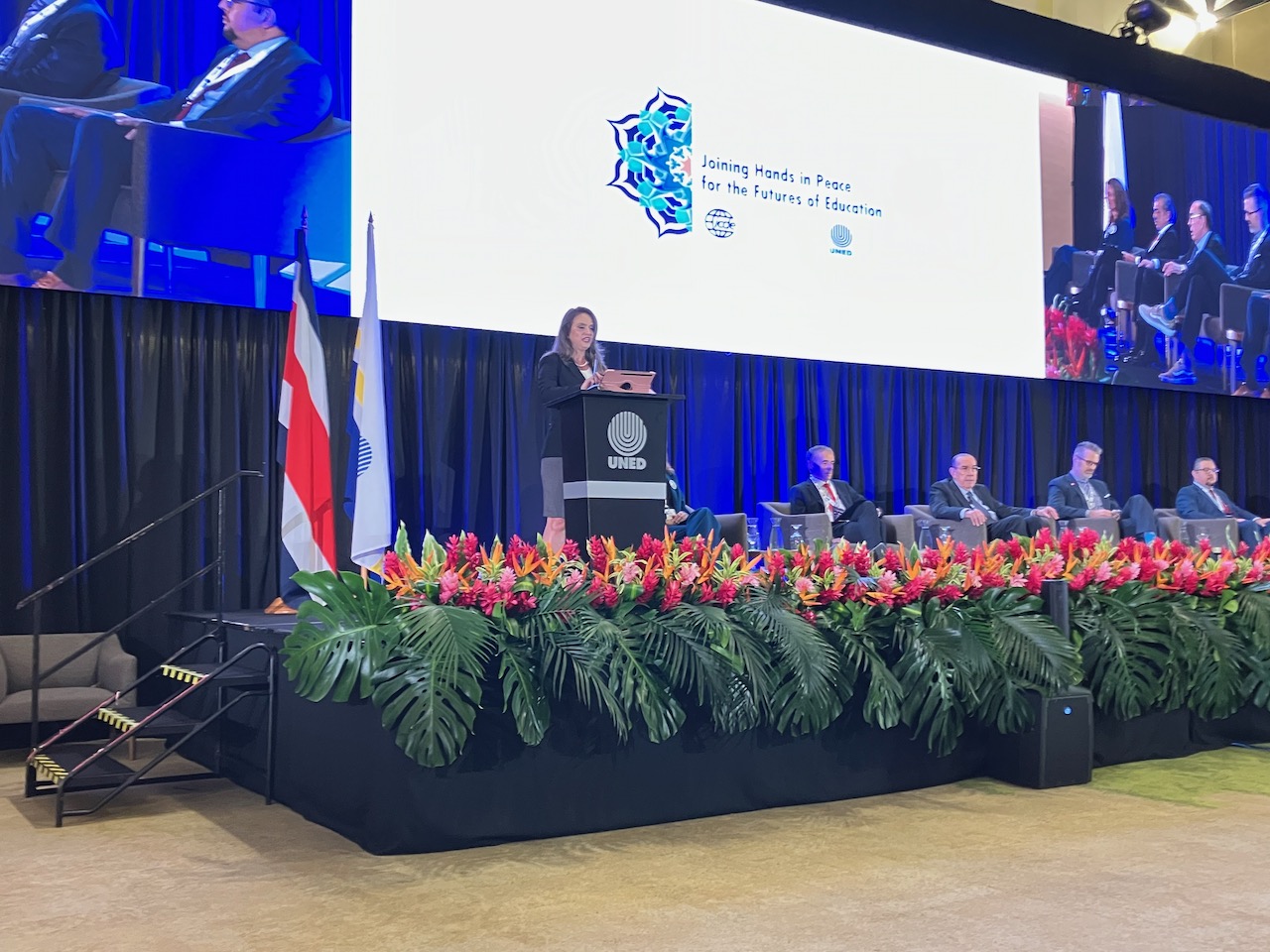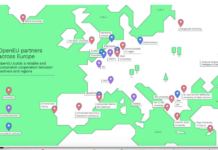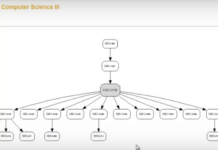
The ICDE conference opened today in San Jose, Costa Rica, celebrating the 85th anniversary of its founding.
The reports on sessions below were chosen based on my specific interests so do not represent the day as a whole.
Conference presentations
John O’Brien, EDUCAUSE
The main keynote speaker after the formal welcome and introductions was John O’Brien, the CEO of EDUCAUSE. This is an organization in the USA which represents mainly university and college Chief Information Officers, so it was not surprising that the session focused on the future of higher education from a mainly IT perspective. He argued that there were three possible roads to the future for institutions after the Covid pandemic:
- re-form: returning to their previous state
- adjust: accommodating changes such as digital learning within the previous overall organizational framework
- transform: radically change to take account of new and emerging technologies.
He argued that following Covid, a large proportion of institutions were moving towards transformation.
He then reported on surveys of CIOs in the USA. Their biggest concern in 2023 was cybersecurity, but surprisingly, the mental health of both students and IT professionals was also a major concern of CIOs. He reported that IT staff in 2022 were suffering from high rates of depression and anxiety and many were considering quitting their jobs.
My personal reflection on this was that the pressure of rapid development of new technologies combined with the difficulties caused by the pandemic were probably the main causes of the increased stress both for students and IT staff.
The changing global landscape of higher education
This was the first of two workshops I attended, this one moderated by Nicole Johnson of the Canadian Digital Learning Research Association, and Mark Brown of Dublin City University, Ireland. Participants were asked, in groups, whether they felt optimistic or pessimistic about the future of higher education. Responses, perhaps not surprisingly, varied not only by country but also by participants from within the same country.
Digital education leadership
The second workshop was moderated again by Mark Brown but joined this time by Josep Duart, President of EDEN Digital Learning Europe. They put the following questions to participants to discuss:
- what do we think we know about leadership in higher education?
- how can we develop more transformative leadership for an uncertain world?
- what would you include in a leadership development program?
Again, conference attendees were the ones who mainly provided the content of this session, and again the answers varied considerably. This was a pity because a great deal is now known about successful leadership, but what little that emerged from this session came mainly from the attendees in a chaotic and scrambled way. This is a critical issue for universities and colleges going forward and deserved better treatment. I certainly learned nothing new from either of these sessions.
An educational resource to support distance learners in navigating their studies.
This session by Philippa Waterhouse of the UK Open University was by far the most interesting session for me. Four video clips were developed based on prior research on OU students that identified both challenges and possible strategies that students who were facing difficulties in their studies could use. Stresses were identified from both students’ work and family contexts.

The videos showed four scenarios using actors where students are shown experiencing stress from either family or work contexts. Students are asked following viewing each video to write possible completions of the story. Several ‘coping strategies’ are then suggested. This is quite a recent project and data is still being collected on the effectiveness of this approach in reducing drop-out and student stress.
This appeared to me to be an excellent use of video and these materials are available as OER from https://www.open.edu/openlearn/crossroads.
Implementing effective videoconferencing in online learning
This was another interesting presentation, this time by Agnieszka Palalas, a professor at Athabasca University, Canada. She examined the distractions present in videoconferences for teaching, such as overloaded information from the instructor or disconnection on the part of the student, and their impact on students’ digital wellbeing. She identified six factors that reduce student distraction and/or improve their wellbeing:
- good quality (technical) accessibility
- active learning
- multimodal communication
- student readiness to learn
- social presence
- socio-cultural sensitivity.
Nine guidelines were offered for effective use of videoconferencing for teaching, based on this and other research.
How AI is making E-learning more accessible, engaging and personalized
This was an excellent keynote by Ron Owston, a fellow Research Associate at Contact North, Ontario. He demonstrated the output from two AI tools based on ChatGPT and developed over the last few months by Contact North at very low cost:
- AI Tutor Pro: a tool to assist student learning
- AI Teaching Assistant Pro: a tool to assist instructors build tests, exams and courses.
With AI Tutor Pro, the student types in a topic and the software responds with a set questions about the topic which the student answers. The software responds with information about the response and provides another question, and so on.
AI Teaching Assistant Pro enables an instructor to choose a topic then automatically develops multiple-choice questions, essay questions and rubrics, and course descriptions/syllabi.
These tools are available for free use using the urls provided in this post. Try them out and see what you think.
Summary
I really enjoyed the social networking and talking to some people I had not seen in years and others whom I did not previously know but knew of me and my work, especially my book, Teaching in a Digital Age. I even met a couple of people who had translated the French and Portuguese versions respectively. The food and cocktails were excellent.
I also learned that UNED Costa Rica has secured bandwidth on a national television network for delivering UNED programs into UNED local centres in rural areas without broadband Internet access, and that many of these programs will be produced in the rural areas themselves.
However, the conference program seemed a little light, compared with previous ICDE conferences, particularly with respect to the number of keynote speakers and the length of the conference, which is only three days. Many sessions are short (10 minutes) with little time for changeover, which due to chance encounters on the way, meant that a couple of times I arrived just as the presenter was finishing. Several presenters also failed to turn up, which meant I made only six sessions today. But what was missing in several of the sessions I attended was any substantive content, in the form of significant research, new information, or stimulating ideas. I am hoping for better tomorrow.









 Dr. Tony Bates is the author of eleven books in the field of online learning and distance education. He has provided consulting services specializing in training in the planning and management of online learning and distance education, working with over 40 organizations in 25 countries. Tony is a Research Associate with Contact North | Contact Nord, Ontario’s Distance Education & Training Network.
Dr. Tony Bates is the author of eleven books in the field of online learning and distance education. He has provided consulting services specializing in training in the planning and management of online learning and distance education, working with over 40 organizations in 25 countries. Tony is a Research Associate with Contact North | Contact Nord, Ontario’s Distance Education & Training Network.

